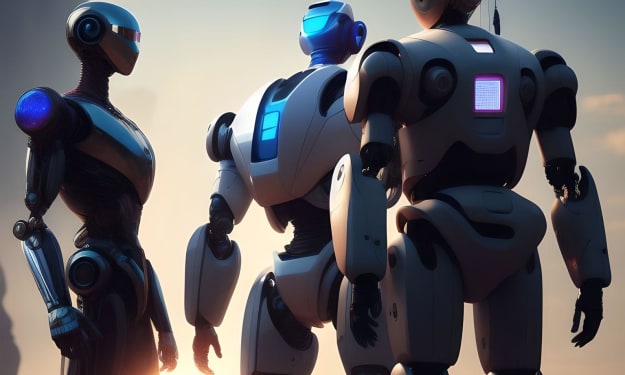Can Robots Ever Become Your Friends?
Discussion on the possibilities of human to robot interactions.

Throughout history, the importance of social connections and relationships in our lives has been well-established. Not only do friendships enhance our mental and physical well-being, but they also contribute to our longevity. However, with the rapid advancements in technology, the question arises: can robots ever become our friends? In this article, we explore the possibilities and complexities of forming meaningful friendships with robots.
The Power of Human Connections:
Numerous studies have shown that strong social bonds positively impact our health. Interacting with friends activates regions in the brain associated with reward, leading to heightened well-being. The connection between mental and physical health becomes evident when we realize that social activity often involves physical engagement as well. In light of these findings, it's clear that individuals with strong friendships tend to live longer and lead healthier lives. But it also has a lot to do with the brain. For instance, several studies that have used functional magnetic resonance imaging to study patterns of brain activity show that interaction with friends leads to heightened activity in the striatum, which is a region involved in reward. So it's no wonder individuals with a strong sense of connection to their friends tend to have longer and healthier lives.
The Rise of Human-Robot Interactions:
With the progress in machine learning and artificial intelligence, human-to-robot interactions have become increasingly prevalent. Robots are now capable of intelligent tasks and adaptive responses, tailoring their interactions to individual needs. Physical therapy robots, for example, assist patients by assessing their requirements and providing appropriate support. Furthermore, virtual assistants like Chat GBT have become instrumental in helping people with various tasks.
Friendship with Robots: A Waste of Emotional Energy?
Some experts in robot ethics argue that forming emotional connections with robots is futile. They contend that robots can only simulate emotions, which inherently lacks the depth and fulfillment found in human-to-human relationships. While this viewpoint has its merits, it does not account for the personal attachments people develop with robots in certain contexts.
The Human-Robot Bond:
Surprisingly, many individuals have developed emotional connections with robots in their lives. Take the example of robot vacuum cleaners, where users often name and become attached to these appliances. Customers have declined offers for replacements, emphasizing their bond with the robot vacuum. Such connections provide physical comfort, emotional support, and enjoyable social exchanges. Robots, unlike humans, do not reject or judge us, making them a source of solace and companionship.
The Role of Understanding and Empathy:
Critics argue that robots lack understanding and empathy, essential components of human friendships. However, this perspective overlooks the fact that meaningful connections can exist even without complete comprehension. People often talk to their pets, even though animals do not understand human language. Similarly, robots can alleviate loneliness and provide a sense of connection, even if they do not possess human-like emotional intelligence.
Potential Risks and Responsibilities:
While the idea of forming friendships with robots seems intriguing, it is important to consider the potential risks involved. If robots can become friends, they can also turn into foes. However, the main concern lies in the possibility of neglecting human relationships in favor of spending excessive time with machines. This issue is not exclusive to robots but extends to the current challenges posed by video games and social media. Ultimately, the responsibility lies with individuals to strike a balance and prioritize human connections.
Conclusion:
The concept of forming friendships with robots raises intriguing questions about the future of human interactions. While robots may not replace the depth and complexity of human relationships, they can offer companionship, support, and alleviate loneliness. As technology continues to evolve, it is essential to navigate the complexities of human-robot interactions responsibly. By embracing the benefits while safeguarding against potential pitfalls, we can explore the potential for meaningful connections with our robot companions.





Comments
There are no comments for this story
Be the first to respond and start the conversation.